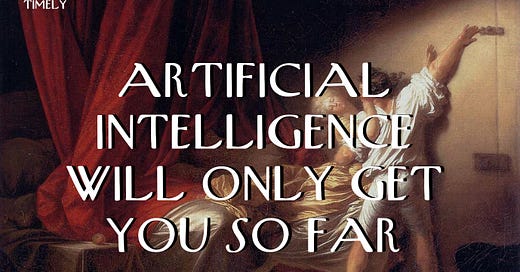
“Affection is responsible for nine-tenths of whatever solid and durable happiness there is in our lives.” — C.S. Lewis, 1960
The world could do with a little less technology.
I’m not trying to be a curmudgeon like Dr. Conrad Gessner. It’s just that every now and then, it’s helpful to put down the device and talk to a real human being.
And yes, I recognize the irony of me saying this to you over the Internet.
We’ve reached a point where people are pleasantly surprised when they’re referred to by name or when they receive a handwritten letter.
To me, the spirit of personalization and the power of analog are alive and well. They incubate in the inkwell on my desk and are brought to life by my fountain pen collection and stationery.
I make a habit of sending real physical notes to people every week.
That level of effort and personal touch speaks volumes to those who receive it. It’s not only out of the ordinary, but it tells t…
Keep reading with a 7-day free trial
Subscribe to Timeless & Timely to keep reading this post and get 7 days of free access to the full post archives.




